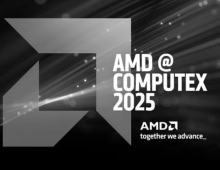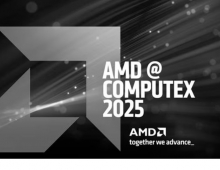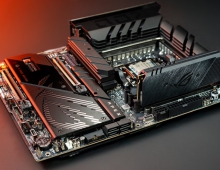
AMD Unveils New Tools For Development Of OpenCL Applications
AMD today announced a new set of software development tools and solutions to enable developers to optimize their applications for OpenCL standards.
These tools create a foundation for software companies to realize the potential of the AMD Fusion Family of Accelerated Processing Units (APUs), harnessing the combined compute power of AMDs high-performance CPUs and GPUs across a wide array of heterogeneous computing platforms.
Among the new offerings is the gDEBugger product, which was created by AMD at its new Israeli research center, based on AMDs acquisition of startup company Graphic Remedy in October 2010. gDEBugger is an OpenCL and OpenGL debugger, profiler and memory analyzer. The new AMD gDEBugger release provides developers with the ability to debug OpenCL kernels, running on AMD GPUs, and step through their source code while examining kernel variables and data. This product, which is a plug-in designed to work with Microsoft Visual Studio, includes all of gDEBuggers previous features and capabilities.
Additional developer solutions include a Parallel Path Analyzer (PPA), Global Memory for Accelerators (GMAC) and Task Manager tools, which are being developed by Multicoreware in collaboration with AMD. These new tools and solutions, expected to be available in Beta during Q3 of this year, are designed to make OpenCL GPU development easier and more efficient.
Parallel Path Analyzer (PPA) is a profiling tool for developing applications that optimize both GPU and CPU load. The PPA visualizes data transfers and kernel execution, identifies system-wide critical paths and locates data dependencies.
The Global Memory for Accelerators (GMAC) API provides a framework in which a developer can create applications leveraging the compute capabilities of OpenCL, but without the overhead of having to explicitly manage multiple data buffers across the separate address spaces of GPU and CPU.
The Task Manager API provides a framework for managing compute tasks in a heterogeneous multi-core environment. OpenCL kernels can be automatically scheduled to execute on an available and task-appropriate device, providing dynamic load balancing, optimizing use of available compute resources and removing the burden of explicit schedule handling.
The new tools are publicly available on the AMD Developer Central website. In addition, developers will be able to learn more about AMDs set of software tools and solutions at the AMD Fusion Developer Summit taking place this week in Bellevue, Washington.
Among the new offerings is the gDEBugger product, which was created by AMD at its new Israeli research center, based on AMDs acquisition of startup company Graphic Remedy in October 2010. gDEBugger is an OpenCL and OpenGL debugger, profiler and memory analyzer. The new AMD gDEBugger release provides developers with the ability to debug OpenCL kernels, running on AMD GPUs, and step through their source code while examining kernel variables and data. This product, which is a plug-in designed to work with Microsoft Visual Studio, includes all of gDEBuggers previous features and capabilities.
Additional developer solutions include a Parallel Path Analyzer (PPA), Global Memory for Accelerators (GMAC) and Task Manager tools, which are being developed by Multicoreware in collaboration with AMD. These new tools and solutions, expected to be available in Beta during Q3 of this year, are designed to make OpenCL GPU development easier and more efficient.
Parallel Path Analyzer (PPA) is a profiling tool for developing applications that optimize both GPU and CPU load. The PPA visualizes data transfers and kernel execution, identifies system-wide critical paths and locates data dependencies.
The Global Memory for Accelerators (GMAC) API provides a framework in which a developer can create applications leveraging the compute capabilities of OpenCL, but without the overhead of having to explicitly manage multiple data buffers across the separate address spaces of GPU and CPU.
The Task Manager API provides a framework for managing compute tasks in a heterogeneous multi-core environment. OpenCL kernels can be automatically scheduled to execute on an available and task-appropriate device, providing dynamic load balancing, optimizing use of available compute resources and removing the burden of explicit schedule handling.
The new tools are publicly available on the AMD Developer Central website. In addition, developers will be able to learn more about AMDs set of software tools and solutions at the AMD Fusion Developer Summit taking place this week in Bellevue, Washington.





















